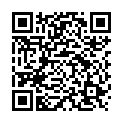|
|
|
| Module code: MBG21-2 |
|
|
2U+2S (4 hours per week) |
|
5 |
| Semester: 1 |
| Mandatory course: yes |
Language of instruction:
German |
Assessment:
Course work
[updated 15.11.2021]
|
MBG21-2 (P311-0177) Management and Professional Pedagogy in Health Care, Bachelor, ASPO 01.10.2021
, semester 1, mandatory course
|
60 class hours (= 45 clock hours) over a 15-week period.
The total student study time is 150 hours (equivalent to 5 ECTS credits).
There are therefore 105 hours available for class preparation and follow-up work and exam preparation.
|
Recommended prerequisites (modules):
None.
|
Recommended as prerequisite for:
MBG21-10 Methodologies II
MBG21.S.31 Video Production
[updated 27.03.2025]
|
Module coordinator:
Studienleitung |
Lecturer:
Studienleitung
[updated 27.03.2025]
|
Learning outcomes:
The Basics of Digital Expertise
After successfully completing this module, students will have the following skills and competencies:
Knowledge and Comprehension:
Students will be able to identify milestones in digitization.
They will be able to describe basic concepts and central aspects of digital literacy.
They will be able to describe the use and application scenarios of digital tools for collaboration and teaching.
They will be familiar with university-specific digital tools.
The Use, Application, and Generation of Knowledge:
Students will be able to routinely use the university’s digital tools in everyday student life (e.g. Moodle, BigBlueButton, Student Services, etc.).
They will be able to apply the guidelines for writing scientific papers in standard software (e.g. Word, PowerPoint, Citavi, etc.).
Scientific Self-Concept/Professionalism:
Students will be able to critically reflect on the application and use of digital tools in their studies, as well as in different areas of application in a professional context
Advanced Digital Competence
After successfully completing this module, students will have the following skills and competencies:
Knowledge and Comprehension:
Students will be familiar with the most important basic principles of data protection, copyright and the right of use.
They will be able to reflect on the significance of digitization in the healthcare sector.
They will be able to explain the basic concepts of digital technologies and be familiar with the problem of conceptual vagueness in their use.
They will be able to identify the current developments, trends and risks of digitization in the healthcare sector.
The Use, Application, and Generation of Knowledge:
Students will be able to use digital tools for collaboration and teaching in a routine and reflective manner.
They will be able to apply usage scenarios of digital tools independently, taking into account the opportunities and risks in their studies, as well as in their professional context.
Scientific Self-Concept/Professionalism:
Students will be able to critically reflect on the application and use of digital tools in their studies, as well as in different areas of application in a professional context
[updated 15.11.2021]
|
Module content:
The Basics of Digital Expertise
1. Overview of university-specific digital resources (WLAN, VPN, learning platform, web conferencing system)
2. Introduction and basics of digitization and digital competence
3. Digital tools for scientific work
4. Overview of digital collaboration tools
5. Overview of digital teaching tools
Advanced Digital Competence
1. Data protection/copyright/right of use
2. Application and use cases of digital collaboration tools
3. Application and use cases of digital teaching tools
4. Overview of current digital technologies in healthcare (Big Data, Machine Learning, Artificial Intelligence, etc.)
Blended Learning
[updated 15.11.2021]
|
Recommended or required reading:
Recommended literature will be announced at the beginning of the course.
[updated 15.11.2021]
|

